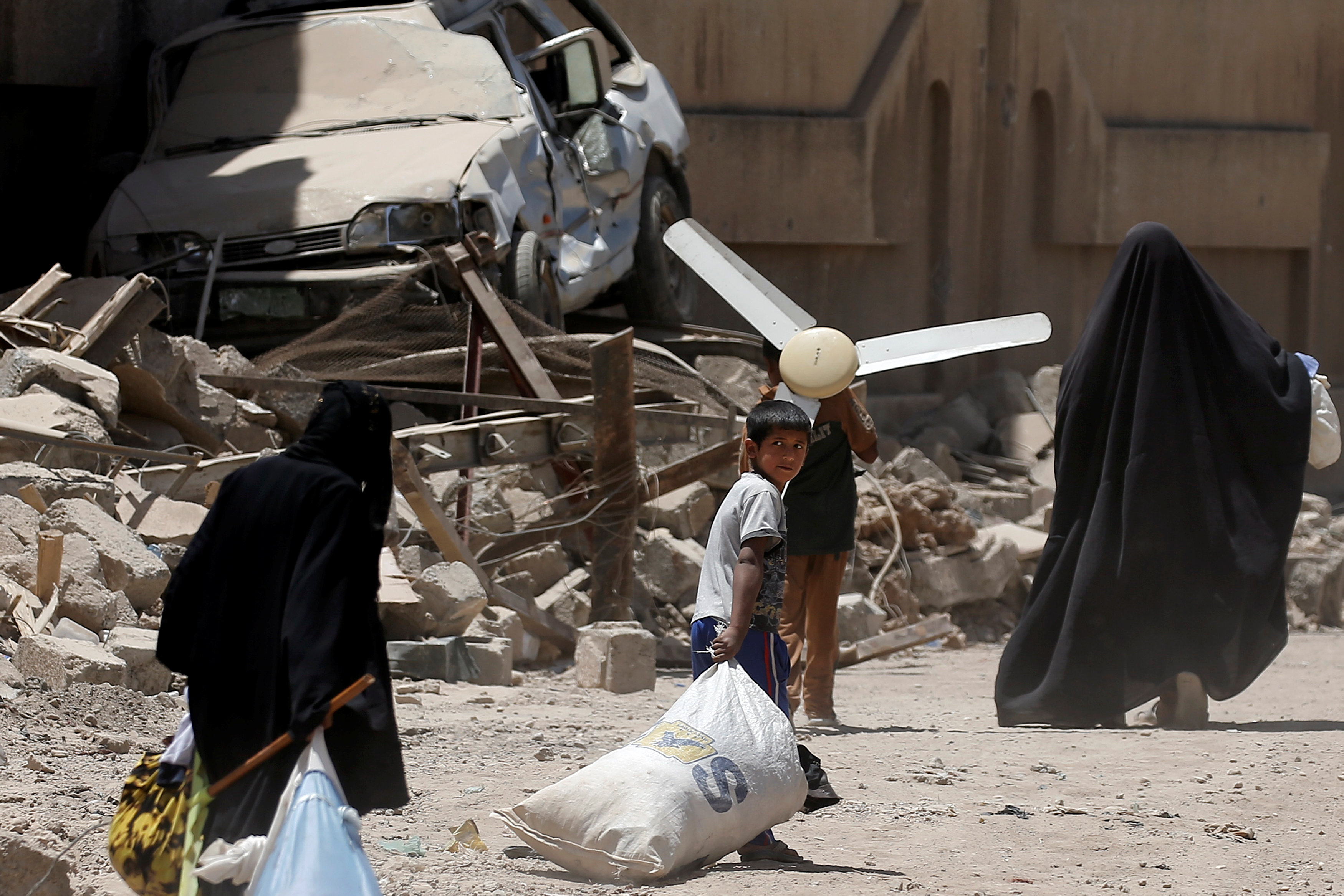
By Orhan Coskun and Daren Butler
ANKARA (Reuters) – Angered by a U.S. decision to arm Kurdish YPG fighters in Syria, Turkey’s President Tayyip Erdogan heads to Washington this week for talks with Donald Trump seeking either to change the president’s mind or to “sort things out ourselves”.
Trump’s approval of plans to supply the YPG as it advances toward the Islamic State stronghold of Raqqa, just days before his first meeting with Erdogan, has cast a shadow over Tuesday’s planned talks between the two NATO allies.
Ankara, a crucial partner in the U.S.-led coalition against Islamic State, considers the YPG an extension of the Kurdistan Workers Party (PKK), which has waged an insurgency in Turkey’s mainly Kurdish southeast for three decades and is designated a terrorist group by Turkey, the European Union and United States.
Washington sees the YPG as distinct from the PKK and as a valuable partner in the fight against Islamic State.
“If we are strategic allies we must take decisions as an alliance. If the alliance is to be overshadowed we’ll have to sort things out for ourselves,” Erdogan told reporters on Sunday, according to the pro-government Sabah newspaper.
Erdogan was speaking during a visit to China, ahead of his trip to Washington for his first meeting with Trump.
Turkey had hoped that Trump’s inauguration would mark a new chapter in ties with Washington after long-running tensions with the Obama administration over Syria policy and Ankara’s demands for the extradition of U.S.-based Muslim cleric Fethullah Gulen.
Erdogan blames Gulen supporters for a failed coup attempt last July and has conducted a large-scale crackdown on them, drawing criticism from Washington. Gulen, who has denied involvement in the coup, remains in the United States.
Erdogan welcomed Trump’s election victory last November and said he hoped it would lead to “beneficial steps” in the Middle East. When Erdogan narrowly won sweeping new powers in an April referendum, Trump rang to congratulate him, unlike European politicians who expressed reservations about the vote.
DYNAMITE
But hopes for rapprochement took a hit last week. The decision to arm the YPG was “tantamount to placing dynamite under Turkey-USA relations”, a senior Turkish official said.
“Just as it was being said that relations (which were) seriously harmed during the Obama period are being repaired, Turkey moving apart from one of its biggest allies would be an extremely bad sign,” the official, who spoke on condition of anonymity, told Reuters.
Erdogan portrays U.S. support for the Kurdish militia – instead of Syrian Arab rebels – as a leftover policy from the Obama administration, which he said had wrongly accused Turkey of doing too little in the fight against Islamic State.
“It is a slander of the Obama administration. Unfortunately now they have left the Syria and Iraq problem in Trump’s lap,” Erdogan said in China.
Erdogan will tell Trump that backing a Kurdish force to retake Arab territory held by Islamic State will sow future crises, and that other forces in the region including Kurdish Iraqi leaders also oppose the YPG, the Turkish official said.
Turkish Prime Minister Binali Yildirim said after talks in London last week with U.S. Defense Secretary Jim Mattis that Trump’s meeting with Erdogan would be an opportunity to “correct the mistake” of support for the YPG.
“Now we will conduct the final talks,” Erdogan said. “After that we will make our final decision.”
The United States sees few alternatives to supporting the YPG, which forms a major part of the Syrian Democratic Forces advancing on Raqqa, if it is to achieve the goal of crushing Islamic State in Syria.
Erdogan did not spell out what actions Turkey might take if Washington does press ahead with its plans.
Officials have suggested it could step up air strikes on PKK bases in northern Iraq, or YPG targets in Syria. It could also impose limits on the use of its Incirlik air base as a launchpad for the air campaign against Islamic State in Syria and Iraq.
But that would hamper operations against jihadis who also menace Turkey and have claimed responsibility for attacks including the bombing of Istanbul airport in June 2016.
“Naturally (Turkey) would have to consider the aftermath of closing the Incirlik base to (U.S.) use,” said Soli Ozel, a lecturer at Turkey’s Kadir Has university.
“It will not be very easy to put relations back on track,” Ozel said. “I think ultimately a formula will be found. I think neither side wants to cut relations.”
(Additional reporting by Tulay Karadeniz; Writing by Dominic Evans; Editing by Gareth Jones)














